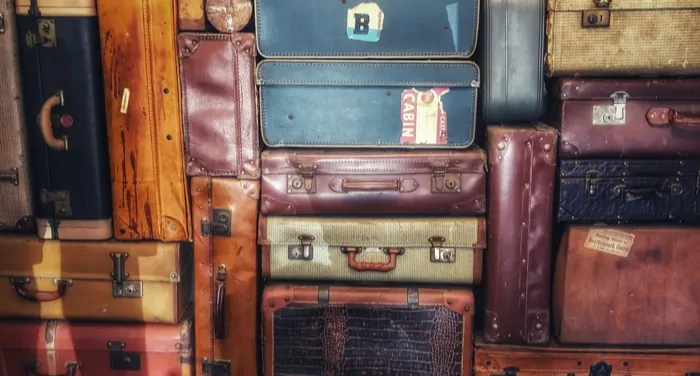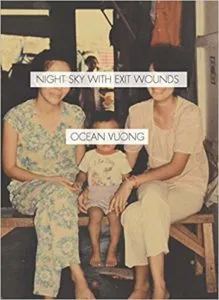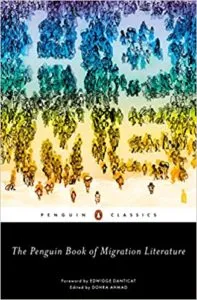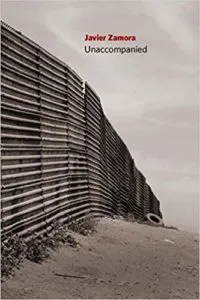
5 Books To Comprehend Global Migration and the Refugee Experience
This content contains affiliate links. When you buy through these links, we may earn an affiliate commission.
“Fiction is a lie that tells the truth.” This long held aphorism holds true. For myself and other bibliophiles and Rioters, the most effective way to comprehend the political and social histories of our times is to read fiction, and especially poetry. That is why I chose these recently published five books of poetry, with one anthology including fictional pieces, of great literature for the reader to experience lives dominated by war and poverty, systemic racism and oppression.
In her 1993 Nobel Prize Lecture when Toni Morrison won the award for Literature, she asked: “Tell us, what it is to have no home in this place. To be set adrift from the one you knew. What it is to live at the edge of towns that cannot bear your company.”
Immigration is not a spreadsheet with statistics. It is the stories of mothers and fathers, telling their stories of dreams and hope that involved—at the very minimum—tremendous risk and great courage.
Literature brings us these essential and bare truths; a confrontation within ourselves that makes many of us too uncomfortable to confront. Literature brings these necessary truths into artistically rendered power.
Queer poet Ocean Vuong published Night Sky With Exit Wounds in 2016. New Yorker Magazine named Vuong’s debut poetry as one of the ten books poetry book of that year.
Vuong was born in Ho Chi Minh City in 1988 and exquisitely details the scenes from Vietnam’s historic trauma. “Milkflower petals in the street/like pieces of a girl’s dress,” is Vuong’s memory of the ash drifting over the dead and injured during the fall of Saigon, when Irving Berlin’s “White Christmas” was being piped into the streets. Young love is discovered, “Show me how ruin makes a home/out of hip bones.//teach me to hold a man the way thirst holds water.”
Vuong presents depression, queer sexuality, domestic abuse, and the violence his family experienced during the war and as refugees. “American soldier fucked a Vietnamese farm girl. Thus my mother exists./Thus I exist./Thus no bombs = no family = no me. Yikes.”
The people in Vuong’s poetry all speak with an unfiltered voice, with pure emotion that makes for excellent political poetry.
The Penguin Book of Migration Literature
This book was published last year and is one of the few books that focuses on global migration.
This book introduces new writers—mainly from the African diaspora—along with older established genius writers such as Salman Rushdie and Zadie Smith.
Edwidge Danticat writes the foreword in this unique anthology and comments on the current situation at the United States border: “These people are risking everything, including separation from their children, for the mere possibility of a better life. I wonder what stories they will eventually tell about this journey and others they have been on. I wonder what their children will have to say. Perhaps those who have preceded them, including many of the writers in this book, will set a blue print for them and open the gates, so to speak, for their voices to be heard.”
This debut collection of poet Javier Zamora. This slim volume of poetry tells the stories of El Salvador’s Civil War of the 1980s with powerful imagery. The book is a tremendous testament to the strength and resiliency of children crossing the border alone—something Zamora did when he was 9 years old to meet his parents in the United States. Zamora writes from the various perspectives of his family, including his gangster machete-wielding grandfather.
Reading Zamora’s book is to experience the systemic racism and oppression of people crossing the border without documentation. Javier Zamora has said about this book: “I think in the United States we forget that writing and carrying the banner of ‘being a poet’ is tied into a long history of people who have literally risked their lives and died to write these words.”
Consider parts from Zamora’s poem “Let Me Try Again”: “Procedures says he should’ve taken us/back to the station, checked our fingerprints, etcetera./He must’ve remembered his family over the border/and told us next time, rest at least five days,/He knew we would try again/and again/like everyone does.”
Once again, poetry brings truth to power.



 Night Sky With Exit Wounds
Night Sky With Exit Wounds
 Unaccompanied
Unaccompanied




